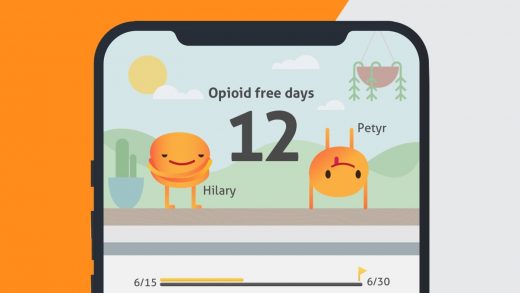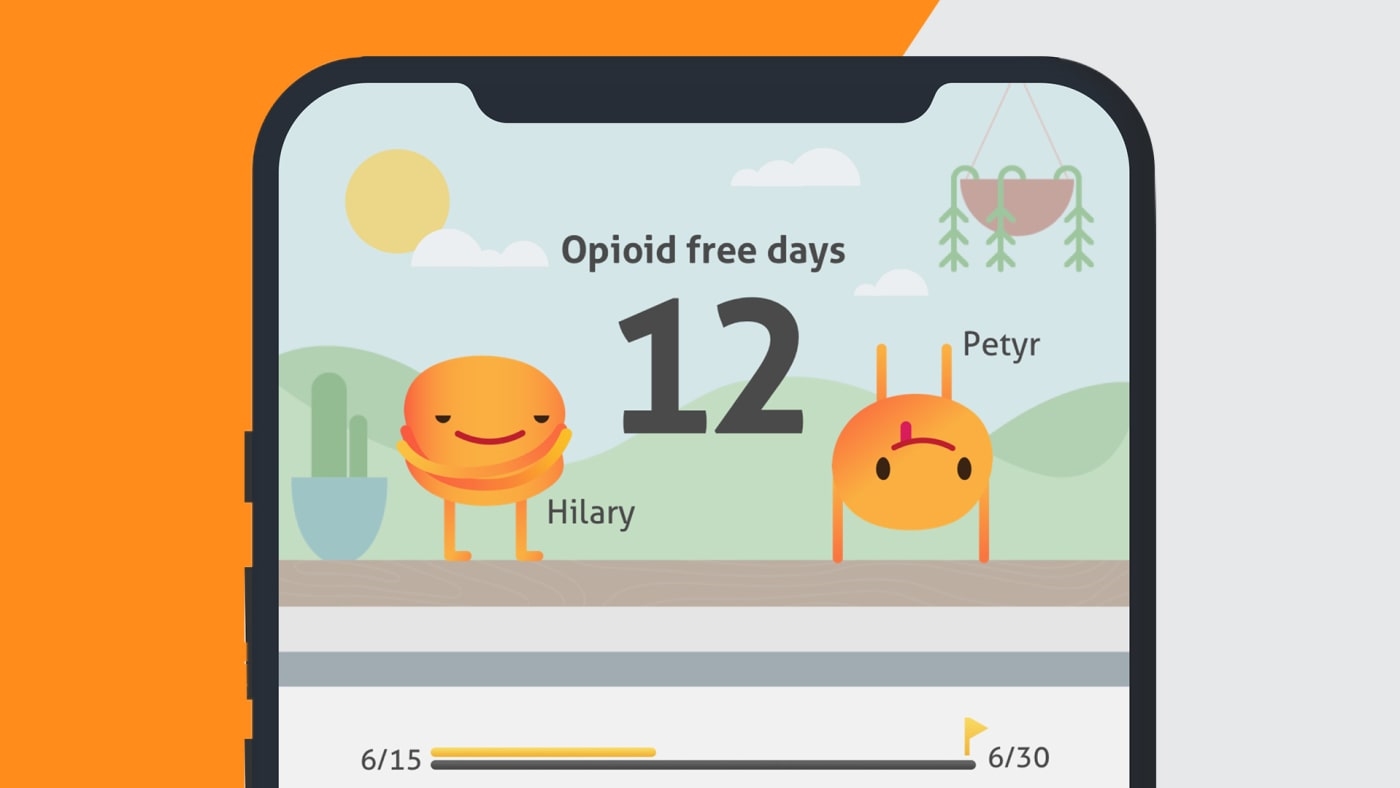This app enlists friends and family to help fight opioid addiction
Would you rather have $5 today, or $45 in 10 days? The question, which helps measure how impulsive you’re feeling, is one of a series asked in a game in a new app under development called ResQ, designed to help people who are recovering from opioid addiction avoid relapse.
A lottery game in the app assesses risk tolerance, while other simple surveys track craving and loneliness. “These are all things that sort of fluctuate day-to-day,” says Paul Glimcher, a neurobiologist and psychologist who leads Data Cubed, the company that developed the app. “In the clinic, we use these to provide a pretty good estimate of what your risk of relapse or reuse is.”
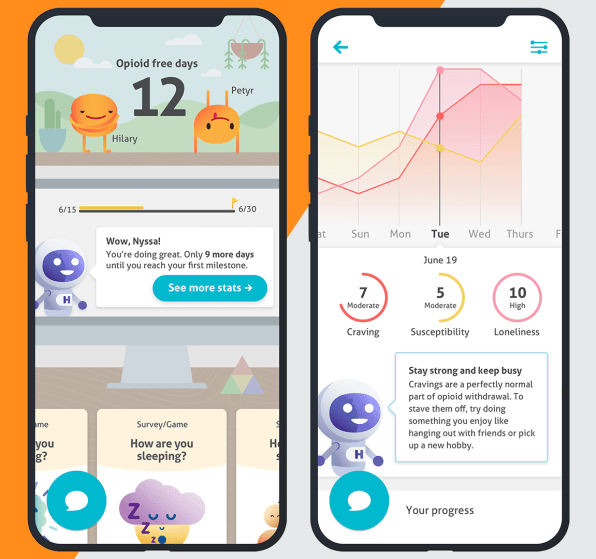
While hundreds of apps related to opioid addiction already exist, “The vast majority have almost no science behind them,” says Glimcher. For the last decade, Glimcher has studied opioid addiction at Bellevue, a public hospital in New York City, and other clinics. The new app translates the assessments that he and other practitioners use in clinics–all proven to work in research–to mobile games. The development team includes both game designers and researchers who have studied opioid addiction under National Institutes of Health grants.
Of the roughly 10 million Americans struggling with opioid addiction, perhaps 1.2 million are in treatment programs, and even those who are in treatment typically have limited contact with clinicians.
“The reality of a place like Bellevue [is] if you need to see a counselor more than once a week, good luck,” he says. “It’s impossible. There’s just no resource for that. What we really like about the app is it means we can provide that support on a daily basis. That’s seven times better than we’re doing in the best-case scenario.”
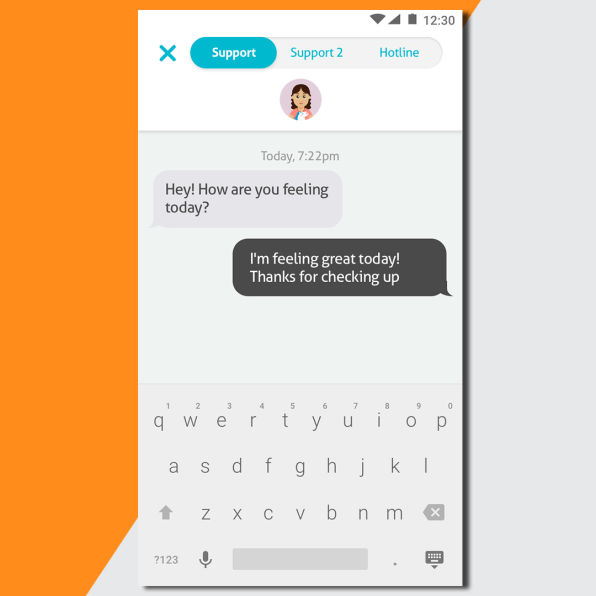
The app lets someone struggling with addiction add contacts from their support network who can view their progress over time. As someone reaches milestones, such as not using heroin for a certain number of days, the app nudges those friends to send congratulations via emoji.
When the tools suggest that someone is at high risk of using heroin–if their scores for impulsiveness suddenly jump, for example–the app can suggest that people in the support network reach out. The app suggests what friends can say, such as talking about what the patient’s goals are, and reinforcing the idea that they can succeed; these are the same things that a counselor would talk about in a clinic. If someone has a counselor, they can also use the app to help determine when to adjust the patient’s dose of methadone, the drug used to help addicts avoid using heroin.
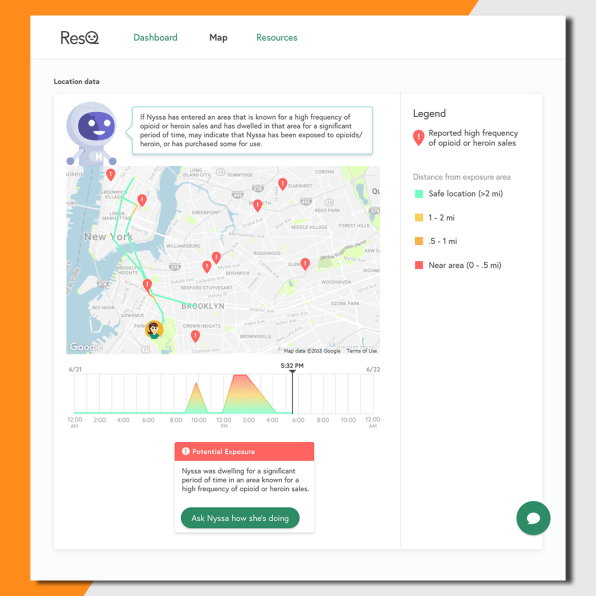
Social withdrawal is another sign that someone may be at risk of use, and by tracking loneliness, the app can also help friends or family intervene at the most critical times. “The sort of standard cycle is that people withdraw, they start craving, they become poorly engaged with this social network, but the person you can always get is your pusher,” says Glimcher. “And so then they wind up seeking out their pusher, and the next thing you know they’re using again . . . the ‘valley of loneliness’ is a really good marker for friends and family, because that’s something you can do something about.”
The team developed the app in response to the Robert Wood Johnson Foundation Opioid Challenge, which called for tech-enabled tools to support and connect people struggling with opioid addiction. ResQ is one of three finalists in the competition, which will select a winner in September, and Data Cubed hopes to release the app in October.
(18)

